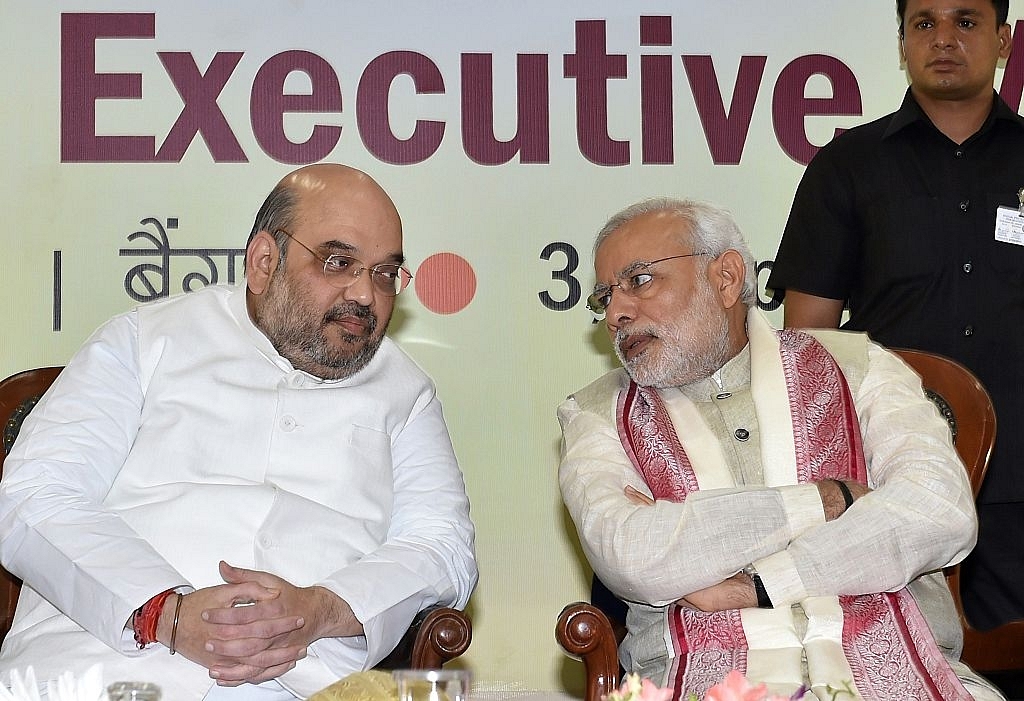Politics
#UP2017: BJP Losing Dalit Vote, But Might Still Make It In UP
- The discontent of some might be the cost of the assured support of others.

Amit Shah (L) and Narendra Modi (MANJUNATH KIRAN/AFP/Getty Images)
Recently, India TV and C-Voter presented the findings of their first tracker poll for the upcoming Assembly elections in Uttar Pradesh. According to that, the BJP and the SP are locked in a dead heat. The poll gave BJP 134-150 seats and the SP a 133-149 out of the total 403 seats in the state.
For the BJP, the tracker poll seemed to confirm what a Swarajya article had suggested in this piece. At some point in the campaign, the party would have to realise that it cannot recreate the Dalit support that it had in the state in the 2014 Lok Sabha elections. It would have to, thus, build its campaign around the core support of the upper-caste Hindu vote and that of the non-Yadav OBCs.
According to the poll, the following would be the main communities supporting the BJP. (Accompanying figures are estimated share of the total votes of these communities for the BJP): Brahmins-53.7 percent; Rajputs-54.4 percent, Vaishya/Baniya-61.4 percent, other upper-caste Hindus-67.1 percent. The survey also projected that the BJP would get 46.4 percent of the Kurmi, 50 percent of the Lodh and 39.5 percent votes of other OBC communities respectively.
The survey also claimed that compared to the 2014 Lok Sabha election scenario, the BJP would lose a significant chunk of the Dalit votes.
Why the BJP may still make it
Because it’s a three-cornered contest in Uttar Pradesh between BJP, SP and BSP, with Congress being a bit player, any vote share close to, or more than 30 percent, can help a party garner seats disproportionately compared to votes.
The India TV-C-Voter survey projects that with 27.79 percent of the total vote, the BJP may get the highest vote share in Uttar Pradesh. This would be on the back of the support given by upper castes and non-Yadav OBCs.
Getting from this position to an actual position of strength may require the BJP to project itself as closer to upper caste Hindus and non-Yadav OBCs than to other communities. The party may even want to actively consider announcing the name of an OBC leader as its chief ministerial candidate, even if it irks other social groups.
The discontent of some might be the cost of the assured support of others.
Introducing ElectionsHQ + 50 Ground Reports Project
The 2024 elections might seem easy to guess, but there are some important questions that shouldn't be missed.
Do freebies still sway voters? Do people prioritise infrastructure when voting? How will Punjab vote?
The answers to these questions provide great insights into where we, as a country, are headed in the years to come.
Swarajya is starting a project with an aim to do 50 solid ground stories and a smart commentary service on WhatsApp, a one-of-a-kind. We'd love your support during this election season.
Click below to contribute.
Latest